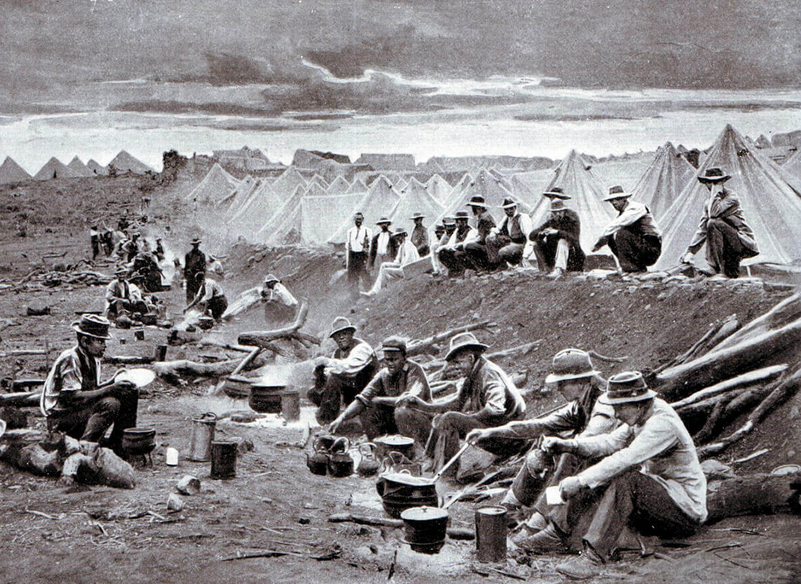We have talked about generations quite a bit on this site, and argued that Gen X is the current “mover” generation, making things happen. This does not mean all Gen Xers are good folks, as we have plenty of idiots and malcontents, just as any generation does. Rather, the point is that we currently live in a Gen X-dominated society, and if Western Culture is to be saved, it will be because of the Gen X leadership.
As we have also pointed out, and in agreement with Strauss and Howe, Gen X basically raised itself. We were latch key kids, spending lots of time alone or with friends of our own age. Unlike earlier generations, we had both parents working outside the home and there was not much in the way of “Day Care.” We were left at home to fend for ourselves. Personally, I can remember being left home alone at the age of four on many occasions. We walked home from school alone, entered our homes alone, often cooked our own meals, and filled our time with whatever we wanted to do.
So I started wondering how earlier “Nomad” generations experienced childhood. That would be the same generational archetype that Strauss and Howe posit in their cyclical generational framework. Gen X is the current “Nomad” generation, but what about those earlier Nomads?
I decided to check out representatives from the three most recent Nomad generations. Using Strauss and Howe’s time frame:
1. The Lost Generation (Born from 1883-1900).
2. The Gilded Generation (Born from 1822-1842).
3. The Liberty Generation (Born from 1724-1741).
NOTE: Per Strauss and Howe, the War Between the States led to the skipping of the “Hero” generation that should have immediately come after the Gilded Generation. We will just stick with their formulation here.
The Lost Generation representatives will be Harry Truman and Ernest Hemingway.
 Truman, born in 1884, was the product of a farming family (and is, currently, the last U.S. President that did not graduate from college). He had enough freedom in his youth to gain employment doing work on the Sabbath for Jewish neighbors, who were restricted on their activities that day. He enjoyed music and learning, and after graduating from High School, after a short stint in college, got a job as a timekeeper for the railroad, often sleeping in hobo camps. He continued on, moving from job to job, until finally moving back home in 1906, where he lived until joining the Army to fight in World War I. Hoping to earn enough money to propose to his sweetheart, he began to speculate in various business ventures, eventually opening a haberdashery. Shortly thereafter, he got into politics, and the rest, as they say, is history.
Truman, born in 1884, was the product of a farming family (and is, currently, the last U.S. President that did not graduate from college). He had enough freedom in his youth to gain employment doing work on the Sabbath for Jewish neighbors, who were restricted on their activities that day. He enjoyed music and learning, and after graduating from High School, after a short stint in college, got a job as a timekeeper for the railroad, often sleeping in hobo camps. He continued on, moving from job to job, until finally moving back home in 1906, where he lived until joining the Army to fight in World War I. Hoping to earn enough money to propose to his sweetheart, he began to speculate in various business ventures, eventually opening a haberdashery. Shortly thereafter, he got into politics, and the rest, as they say, is history.
 Hemingway, born in 1899, came from a well-educated family. His mother, a musician, was frequently gone from home, while his physician father taught him to love the outdoors. He played sports in High School, and went to Europe as an ambulance driver during World War I. He was wounded by mortar fire, as he served near the front, and it had a major impact on his world view, as he realized that his mortality was ever-present. After his return home, he went camping with friends. These experiences led to his first efforts at writing, which landed him a job as a correspondent. He began to move around quite often, until he became a celebrated novelist.
Hemingway, born in 1899, came from a well-educated family. His mother, a musician, was frequently gone from home, while his physician father taught him to love the outdoors. He played sports in High School, and went to Europe as an ambulance driver during World War I. He was wounded by mortar fire, as he served near the front, and it had a major impact on his world view, as he realized that his mortality was ever-present. After his return home, he went camping with friends. These experiences led to his first efforts at writing, which landed him a job as a correspondent. He began to move around quite often, until he became a celebrated novelist.
The Gilded Generation Representatives will be Thomas “Stonewall” Jackson and Ulysses S. Grant.
 Jackson, born in 1824, was the third child in his family. His father died when he was very young (his younger sister was born the day after his father’s death, which had quickly followed the death of an older sister), and his mother, with three young children, and deep in debt, sold the family’s possessions and took in sewing and other such work to make ends meet. His mother died a few years later, so he was sent to live with relatives. After being mistreated, he ran away. He was eventually accepted into West Point, and though beginning at the bottom of the class, due to poor schooling, he continually advanced, graduating 17th out of 59 in his class. He was an overacheiver, who did things his own way.
Jackson, born in 1824, was the third child in his family. His father died when he was very young (his younger sister was born the day after his father’s death, which had quickly followed the death of an older sister), and his mother, with three young children, and deep in debt, sold the family’s possessions and took in sewing and other such work to make ends meet. His mother died a few years later, so he was sent to live with relatives. After being mistreated, he ran away. He was eventually accepted into West Point, and though beginning at the bottom of the class, due to poor schooling, he continually advanced, graduating 17th out of 59 in his class. He was an overacheiver, who did things his own way.
 Grant, born in 1822, was the son of a tanner, and the oldest of six children. Grant did not enjoy the tannery business, so his father allowed him, by his middle teens, to do delivery work, allowing Grant to spend much time on his own. He did attend various school settings, eventually graduating from West Point in 1843. His parents did not require him to attend church services as a youth, allowing him to worship in his own ways (interestingly, they were more strict with his siblings).
Grant, born in 1822, was the son of a tanner, and the oldest of six children. Grant did not enjoy the tannery business, so his father allowed him, by his middle teens, to do delivery work, allowing Grant to spend much time on his own. He did attend various school settings, eventually graduating from West Point in 1843. His parents did not require him to attend church services as a youth, allowing him to worship in his own ways (interestingly, they were more strict with his siblings).
The Liberty Generation will be represented by George Washington and Andrew Pickens.
 Washington, was born in 1732, and his father died when George was 11 years old. His older brother, Lawrence, took over family leadership. His older brothers had received fine educations, but his father’s death caused young George to be less-educated. Over his lifetime, he had perhaps 7-8 years of education, often by tutors. He frequently moved around between relatives. By the time he was 16, he was working as a surveyor, proving adept at the job and earning a good income, allowing him to purchase quite a bit of land, in addition to what he eventually inherited from his father and brother. At the age of 20, his military career began.
Washington, was born in 1732, and his father died when George was 11 years old. His older brother, Lawrence, took over family leadership. His older brothers had received fine educations, but his father’s death caused young George to be less-educated. Over his lifetime, he had perhaps 7-8 years of education, often by tutors. He frequently moved around between relatives. By the time he was 16, he was working as a surveyor, proving adept at the job and earning a good income, allowing him to purchase quite a bit of land, in addition to what he eventually inherited from his father and brother. At the age of 20, his military career began.
 Pickens, was born in 1739 in Pennsylvania, the son of Scots-Irish immigrants to the U.S. His family continued their migration, eventually ending up in South Carolina when Pickens was 13. They had several pieces of land during this time, and Pickens eventually sold the land that they had settled, near the Georgia border, moving closer to Abbeville, where he began his family. He began raising cattle and farming, and grew acquainted with the Native population, with several treaties between the Americans and Indians being concluded at his home. He was a devoted Presbyterian, and rose to the rank of Brigadier General in the Continental Army, all before he was 42 years old. He went on to serve in the political arena.
Pickens, was born in 1739 in Pennsylvania, the son of Scots-Irish immigrants to the U.S. His family continued their migration, eventually ending up in South Carolina when Pickens was 13. They had several pieces of land during this time, and Pickens eventually sold the land that they had settled, near the Georgia border, moving closer to Abbeville, where he began his family. He began raising cattle and farming, and grew acquainted with the Native population, with several treaties between the Americans and Indians being concluded at his home. He was a devoted Presbyterian, and rose to the rank of Brigadier General in the Continental Army, all before he was 42 years old. He went on to serve in the political arena.
So what do we see from these six examples? Do they match up with the childhood experiences that Gen X also saw? While no two generations are exactly alike, I would argue that their upbringings are similar. These young men all tended to have lots of freedom, spending significant time alone. Often, their mothers were absent, either for work, sickness, or death. They tended to move around a bit, which kept them from establishing deep roots in an ancestral home. Rather, they built their own homes, and established their own heritage to pass along (if they lived long enough).
So I would say that we can learn a lot from these earlier generations. We experienced similar childhoods, and can learn from how they approached life, taking advantage of the world situations that arose, finding a way to leave the world a better place than how they found it. Now, I am not saying I agree with everything these men did, and in fact, there are a couple of them that I despise for many reasons. At the same time, even if they made choices I would not make, their background gave them the wherewithal to make those decisions. They were independently minded and trusted their own guts.
Nomads are a good and honorable generation archetype. The world is lucky to have us.










Works for me! My two oldest sons are late Gen X, and my youngest on the cusp between Gen X and Millennial. I think both generations are awesome. Certainly, Gen X’s capacity for independence is bringing an important correction to our culture’s long insurance-driven obsession with the appearance of safety.
I’m especially grateful to have President Trump to set an example of traditional fatherliness that the mellowing Gen X can look up to, as you all step up into that role. I don’t try to pick out ‘up and comers” from the generation in politics because I suspect that our greatest Gen X leaders have not yet lifted their heads into the limelight, and are doing as they did whilst children: being responsible on their own, building careers, families, homes, getting out from under debt and smoothing the way for a solid future.
I finally bought The Fourth Turning last year, and simply cannot get into it. I’ve read bits and pieces, which is not good for wrapping my head around the whole thing. So for now all I know is what other reviewers – like you, Bill Quick, the guys over at The Burning Platform – have said about it…what an SJW position to be in LOL